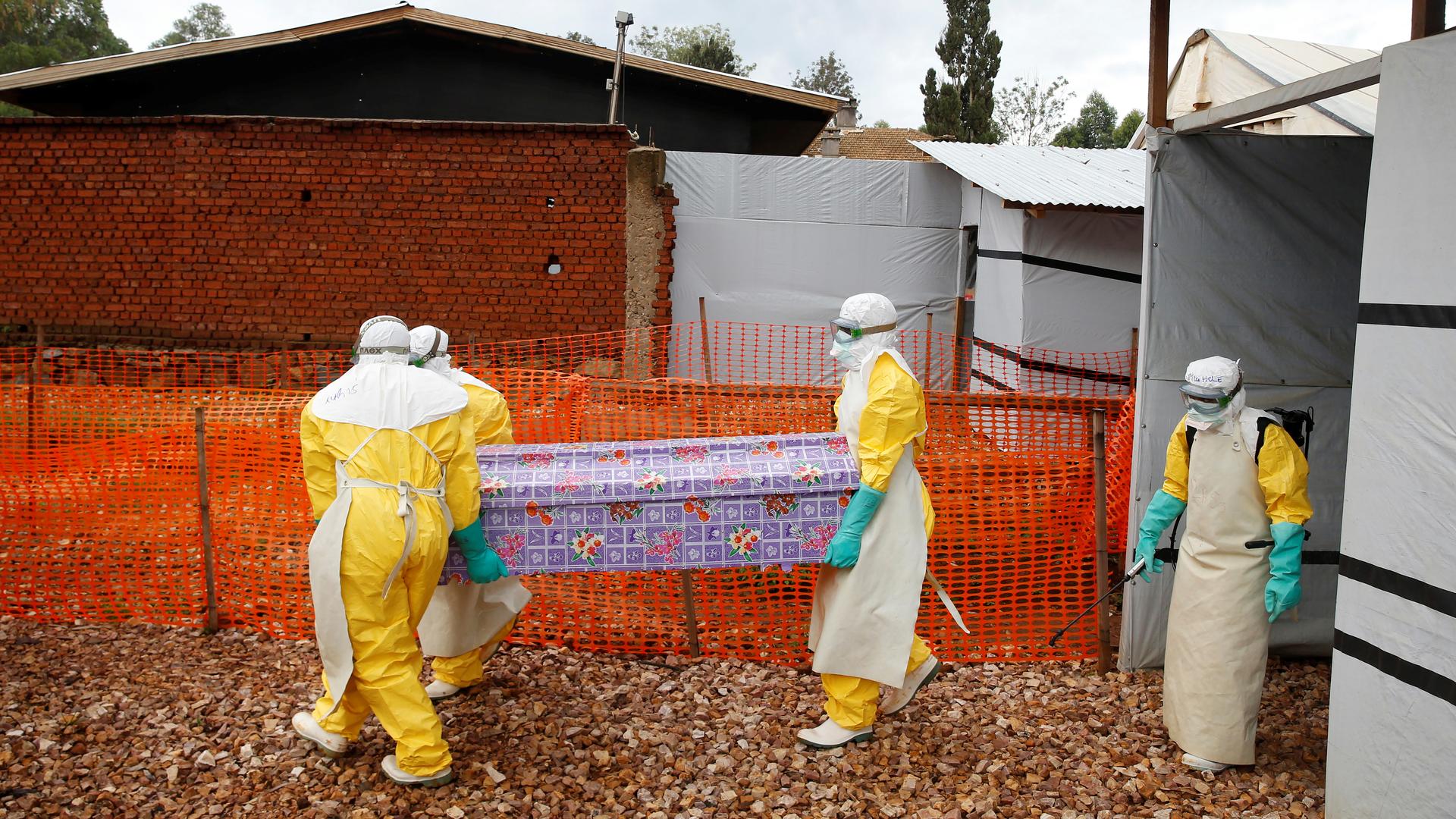Deadly Ebola outbreak contained within Congo
Health workers dressed in Ebola protective suits carry a coffin with the body of Congolese woman Kahambu Tulirwaho, who died of Ebola, as it is transported for a burial in Butembo, March 28, 2019.
An outbreak of Ebola in the Democratic Republic of Congo (DRC) that has killed more than 700 people and is continuing to spread does not constitute an international emergency, the World Health Organization said on Friday.
Declaring the epidemic a “public health emergency of international concern” would have signaled that greater resources and international coordination are needed.
The WHO’s independent Emergency Committee, which analyzed the latest data, said the disease was entrenched in several epicenters in the northeast and was being transmitted in health care settings.
Related: Here’s everything you wish you didn’t need to know about Ebola
It had not spread across borders to Uganda, Rwanda or South Sudan, but neighboring countries should shore up their preparedness, the experts said.
“It was an almost unanimous vote that this would not constitute a PHEIC (public health emergency of international concern) because we are moderately optimistic that this outbreak can be brought into control – not immediately, but still within a foreseeable time,” panel chairman Professor Robert Steffen told a news conference.
Dozens of new cases reported this week have been mainly in the epicenters of Butembe, Katwe and Vuhovi, said Mike Ryan, head of the WHO’s health emergencies program.
“It’s quite a focused amplification of disease in a very specific geographic area,” Ryan said.
Related: Ebola survivors face lingering health problems
“But the disease there has risen because of lack of access to that community, we’ve fallen behind in starting vaccination rings,” he said, referring to attacks on health centers by armed groups in February that cut-off hotspot areas.
“Vaccine is proving to be a highly effective way of stopping this virus but if we can’t vaccinate people we cannot protect them,” he added, noting that nearly 100,000 people have been vaccinated.
Experts have declared four emergencies in the past decade: the H1N1 virus that caused an influenza pandemic (2009), a major Ebola outbreak in West Africa (2014), polio (2014) and Zika virus (2016).
Some experts expressed concern that the Emergency Committee was too narrowly interpreting WHO guidelines.
“This is a deeply concerning event, due to the pathogen itself, the total number of cases, the increase in cases just this week, and the difficulty of coordinating the response due to conflict — that needs to receive the appropriate level of attention,” health experts Rebecca Katz and Alexandra Phelan of Georgetown University in Washington, DC, said in a statement.
The Ebola outbreak — by far the biggest Congo has seen, and the world’s second largest in history — was declared by national authorities in August. It is concentrated in Congo’s North Kivu and Ituri provinces.
It has already infected at least 1,206 people, of whom 764 have died — giving a death rate of 63 percent.
They include 20 new cases reported by the health ministry on Thursday, another one-day record after 18 on Wednesday. Two workers at the Butembo airport tested positive, it said.
